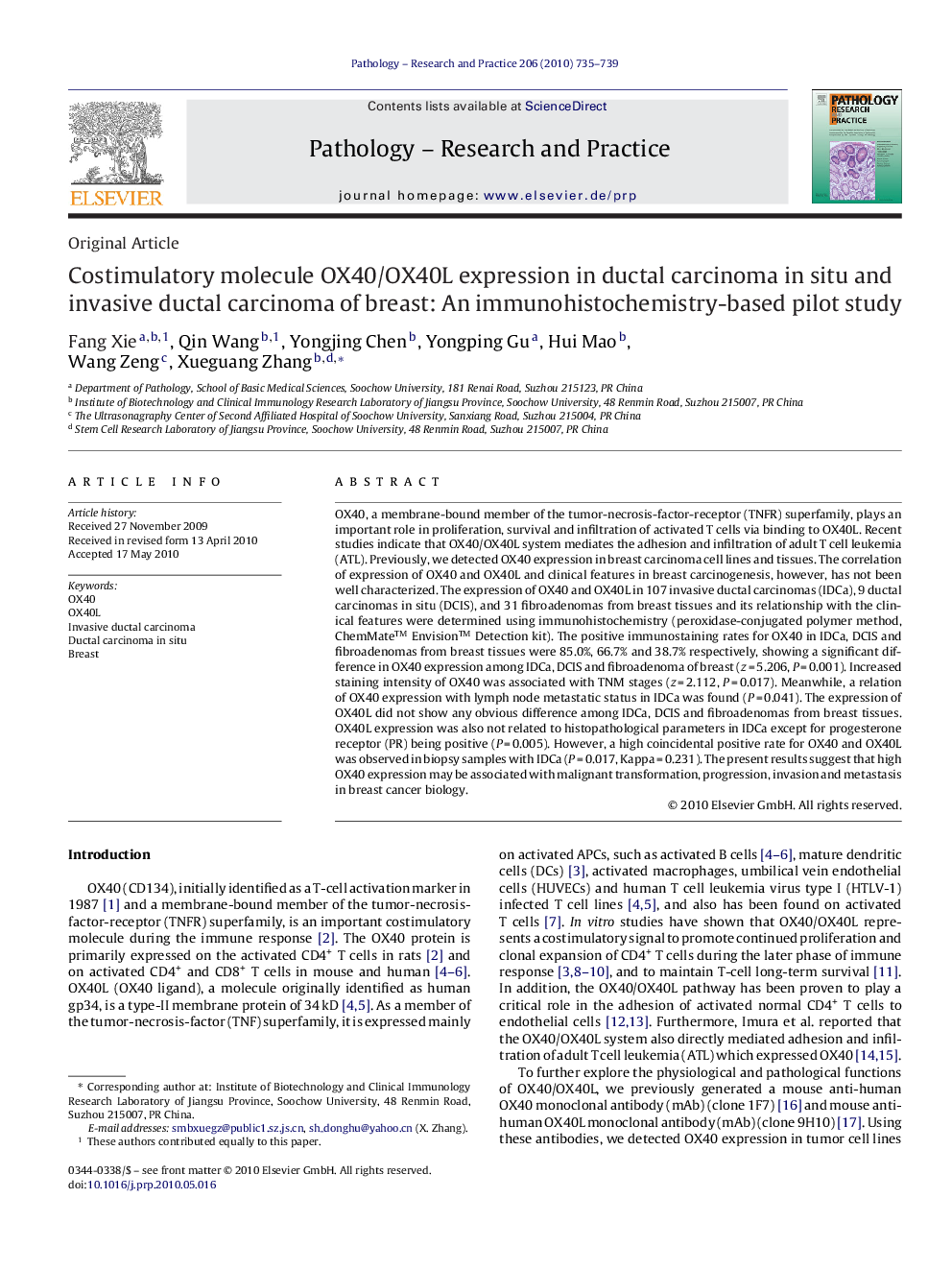| Article ID | Journal | Published Year | Pages | File Type |
|---|---|---|---|---|
| 2156059 | Pathology - Research and Practice | 2010 | 5 Pages |
OX40, a membrane-bound member of the tumor-necrosis-factor-receptor (TNFR) superfamily, plays an important role in proliferation, survival and infiltration of activated T cells via binding to OX40L. Recent studies indicate that OX40/OX40L system mediates the adhesion and infiltration of adult T cell leukemia (ATL). Previously, we detected OX40 expression in breast carcinoma cell lines and tissues. The correlation of expression of OX40 and OX40L and clinical features in breast carcinogenesis, however, has not been well characterized. The expression of OX40 and OX40L in 107 invasive ductal carcinomas (IDCa), 9 ductal carcinomas in situ (DCIS), and 31 fibroadenomas from breast tissues and its relationship with the clinical features were determined using immunohistochemistry (peroxidase-conjugated polymer method, ChemMate™ Envision™ Detection kit). The positive immunostaining rates for OX40 in IDCa, DCIS and fibroadenomas from breast tissues were 85.0%, 66.7% and 38.7% respectively, showing a significant difference in OX40 expression among IDCa, DCIS and fibroadenoma of breast (z = 5.206, P = 0.001). Increased staining intensity of OX40 was associated with TNM stages (z = 2.112, P = 0.017). Meanwhile, a relation of OX40 expression with lymph node metastatic status in IDCa was found (P = 0.041). The expression of OX40L did not show any obvious difference among IDCa, DCIS and fibroadenomas from breast tissues. OX40L expression was also not related to histopathological parameters in IDCa except for progesterone receptor (PR) being positive (P = 0.005). However, a high coincidental positive rate for OX40 and OX40L was observed in biopsy samples with IDCa (P = 0.017, Kappa = 0.231). The present results suggest that high OX40 expression may be associated with malignant transformation, progression, invasion and metastasis in breast cancer biology.
